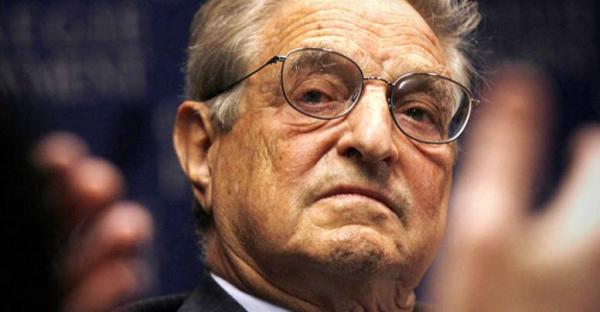
(Article by Amy Mek republished from RairFoundation.com)
Last week RAIR Foundation USA translated a video by a young German journalist living in Donetsk, Alina Lipp. After her video on the Donbas region went viral, she was registered on Ukraine’s official Terrorist website as a “Russian terrorist.” Lipp is neither a Russian citizen nor does she have a Russian passport.
Lipp’s pro-Donbas reporting is believed to be why she was classified as a terrorist. She has repeatedly claimed that the Ukrainian military has been attacking Donbas Russians for the past eight years. In Lipp’s viral video, she highlighted that the people living in Donbas want to belong to Russia and have been “thankful that Russia finally did something.” She stressed, “Finally, the people here have been liberated from the terror that they’ve been experiencing for the last eight years” from the Ukrainian government.
Lipp released a video statement in response to people attacking her work and the Ukraine government registering her as a “Russian Terrorist”:
This message is for all those who, for some reason, want to defame me. As it turns out, I’m now registered on the official Ukrainian terrorist site and I’m also now listed as a Russian terrorist. That’s pretty funny, because I don’t even have a Russian passport.
Why they want to defame me, I don’t know, because I just want to show how things really are here in Donbas, in Donetsk, for example. I can show proof of my entire life, my résumé, everything I’ve done, all my encounters, meetings, to prove there’s nothing I’m somehow hiding. I’m an independent journalist, and I can also prove that. I’m simply trying to work for peace.
Explosions can be heard going off in the background here again. That’s the Ukrainian army, which has been shelling the Donbas region for the last eight years, and I’ve seen that with my own eyes. I’ve seen the people suffering in the outskirts. You know, if you want to defame me, ask yourself why? I’m only filming what isn’t shown in the West. I just want to expose an injustice, and that’s something everyone should want.
Why should I be defamed? Why should I be prevented from exposing this injustice? Expose the genocide. I don’t understand it.
Just an example: someone from T-online contacted me, to do an interview with me. Best regards to that gentleman. He wrote very nicely and then I answered him. I said, I would like to and that I would gladly answer questions, but that I’d like to read it through and approve the article before publication. Then he said: “Nah, I don’t do that.”
I had the same thing happen before, I think it was with Der Spiegel magazine. It was a long time ago. I ask myself, if you don’t agree with my checking my own statements beforehand, then you’re basically admitting that you intend to change my statements, in a way that I wouldn’t agree with afterwards. So, it’s unbelievable. What kind of journalism is that?
Just show the truth, and statements from people whom you interviewed should be what they said. That’s how it should be. It’s unbelievable what has become of this world, and what journalism has become, especially in the West. Oh well. Bye
Will The U.S. Government Also Label Journalists as Terrorists?
It is not shocking that Lipp has been labeled a “terrorist” by the Ukrainian government when U.S. President Joe Biden’s government is doing the same thing to individuals going against his narratives.
On February 7, 2022, the Department of Homeland Security released a bulletin stating that “misleading narratives” are the most dangerous contributor to terrorism against the United States.
SUMMARY OF THE TERRORISM THREAT TO THE UNITED STATES: The United States remains in a heightened threat environment fueled by several factors, including an online environment filled with false or misleading narratives and conspiracy theories…
These threat actors seek to exacerbate societal friction to sow discord and undermine public trust in government institutions to encourage unrest, which could potentially inspire acts of violence.
A federal agency says that to “undermine public trust in government institutions” is now considered terrorism.
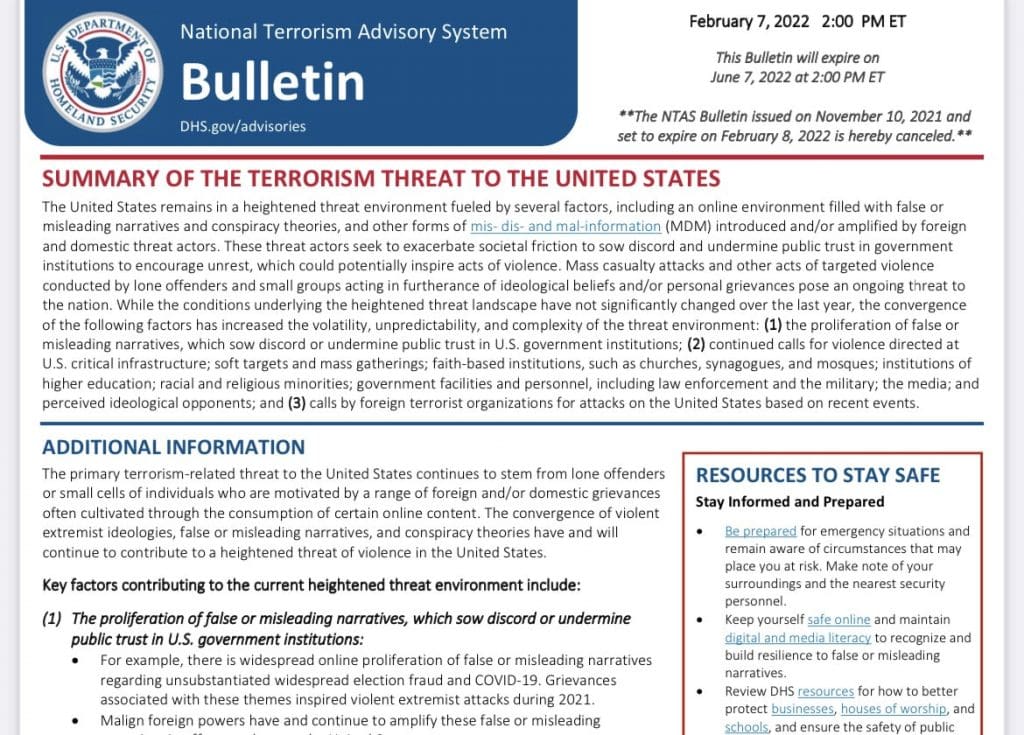
Under these new U.S. guidelines, will American journalists be considered “terrorists” for reporting on Alina Lipp’s work?
Learn More About Alina Lipp
The following interview and report by SNA News with Ms. Lipp from February 14, 2022, will give more insight into who she is and the work she is doing:
Alina Lipp is a freelance journalist and has been living in the Donbas for several months, from where she reports on the current situation via her Telegram channel “News from Russia.” From there, she reports on the current situation in the war zone, where Western journalists have rarely been seen since the beginning of the conflict.
During her studies in Germany, Lipp explains that she took every opportunity to better understand Russia, taking part in different internships, volunteer work, and traveling to Siberia on the Trans-Siberian Railway. After her father emigrated from Germany to Crimea a few years ago, Alina finally decided to live in Russia in early 2021. She has since traveled around as a journalist, participated in film projects, and promoted a political friendship between Germany and Russia.
A war that has long since begun – Report of a German in the Donbass
“Wham. Somewhere, not too far away, there’s a bang. I cringe, looking around. But, apart from me, no one around me stops; the passers-by pretend not to have heard anything. It’s the fall of 2021, I’m standing in the center of Donetsk, and it’s the first time I have become aware of the warfare on the border with Ukraine.
Normally, nothing is heard in the city center. However, in the evening, I learned on the news that the Ukrainian army landed a drone with an explosive device in the Donetsk oil depot. The device was detonated and defused a safe distance from the oil barrels. Much of the city would have been wiped out if the explosive device had gone off on a barrel as initially planned.
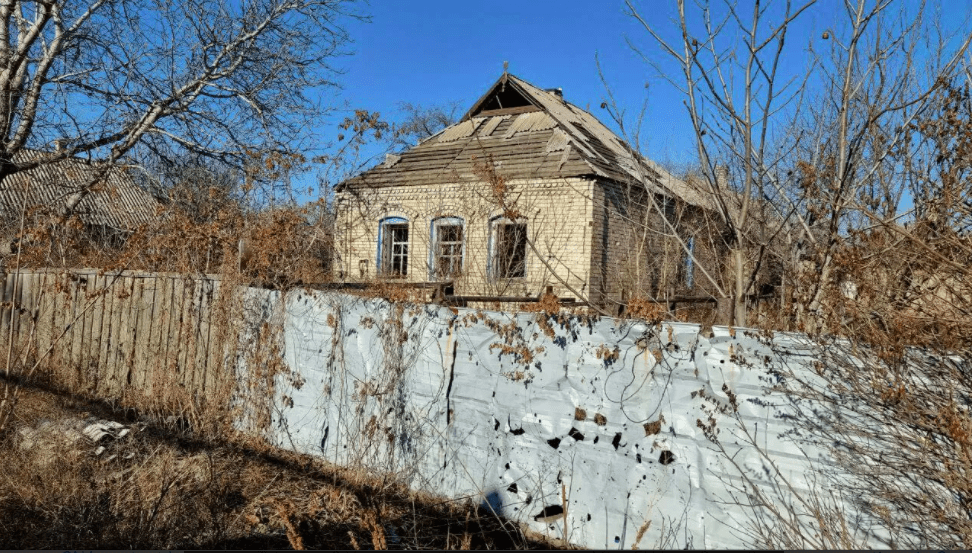
Despite all the dangers, I’ve been in Donetsk for three months – the Donbas and the stories of its inhabitants just won’t let me go. It is a fascinating place with even more fascinating people. It gives me a burning desire to report on events for German viewers and readers as best I can – especially due to the silence of our media about what is really going on here. The only reports I find in the German-speaking world on Donbas are written from outside and, as a rule, only present Ukraine’s point of view. I’m not aware of any correspondent from a Western, established media outlet who seeks out the other party’s opinion in this conflict or dares to talk to the people of the Donetsk or Lugansk People’s Republics for this purpose – which would actually be standard journalistic practice.
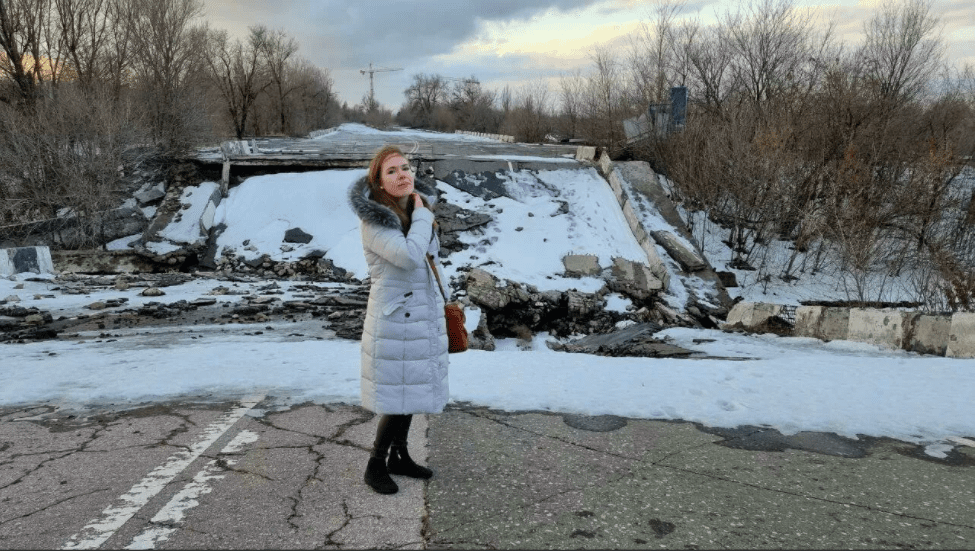
In recent months, I have talked to the local population, spoken to politicians, traveled to the frontline areas, provided humanitarian aid, and shot footage with the German-Russian-Donetsk cooperation. I often ask myself why I took on this job voluntarily because I have a master’s degree in sustainability science. However, considering that my parents (mother German, father Russian) met at a German-Soviet peace regatta, which was intended to draw international attention to the critical ecological state of the Baltic Sea, my life path has taken on something more of a deeper meaning. Promoting German-Russian friendship has become my purpose in life for several years now. I view the most significant cause for the strained bilateral relations resulting from the one-sided Western media coverage, which leaves the reader no choice but to develop a dislike for Russia. I mainly highlight the central conflict topics of Crimea and Donbas in my channels and on my website.
I visited Crimea for the first time in 2016 and founded the YouTube channel ‘Happy in Crimea.’
For several months, the situation in the Donbas has been coming to a head. I’ve understood that this conflict, which has been going on for eight years, must be resolved to rebuild good relations between Russia and the West. So why couldn’t the dispute be resolved in the last eight years? In 2021, I decided to go to Donetsk to find an answer to this question and learn more about it.
Situation in Donbass
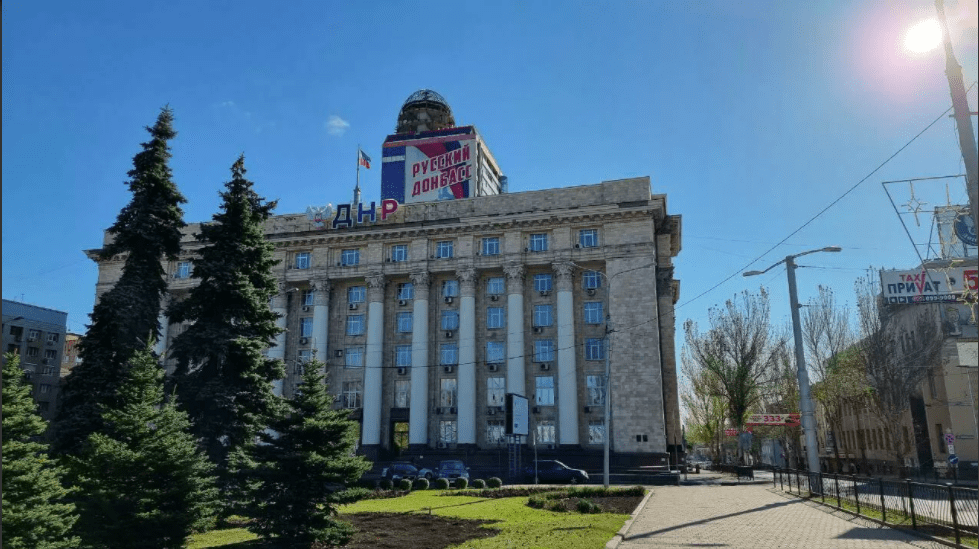
After talking to local citizens and politicians, as well as representatives of the Russian government, I can say the following with certainty: The population of the Donbas has been terrorized for eight years by ultra-nationalist-minded compatriots, who, in the vast majority of cases, are the first to open fire. Moreover, they do not shy away from shooting at schools and children. For this reason, there is no way back to Ukraine for the people, and most of them hope for Russia to take over the republics – just as it had happened with Crimea at that time. But as I was told, Russia will not take in the Donbas republics under any circumstances; otherwise, this would have been done already.
Crimea already had the status of an autonomous republic at the time of admission – the Donetsk and Lugansk People’s Republics did not. Accordingly, access to the Russian Federation would be unlawful. Political experts, therefore, see only two ways out of the situation: international recognition of the Donbas republics as independent states; or their incorporation into the Russian Federation together with the rest of Ukraine. This is a scenario that the Western media today regard in all seriousness as an ultima ratio of the Kremlin. This would mean that Russia would bring thousands and thousands of violent nationalists into the country and risk an inevitable war with the whole world.
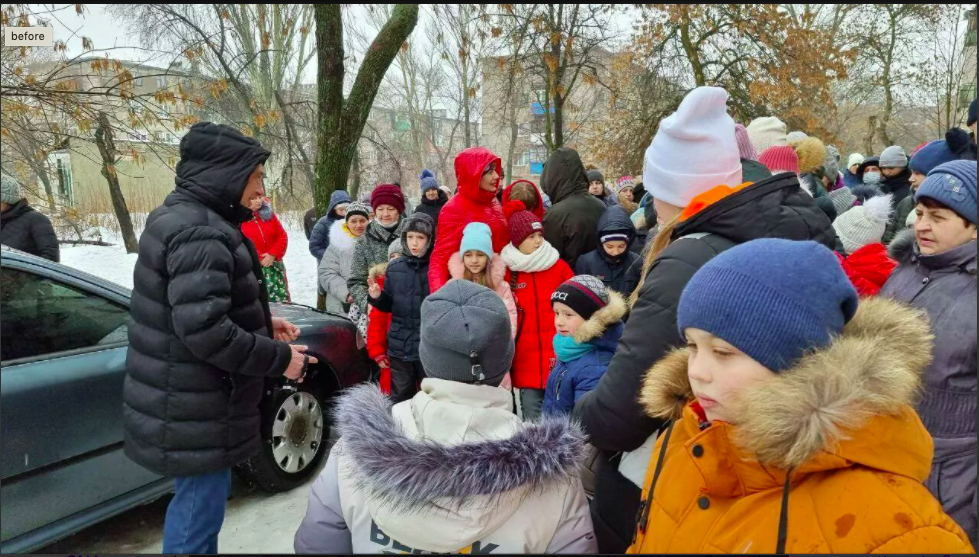
Russian patriotism is omnipresent in the Donetsk People’s Republic. Russian is spoken everywhere; payments are made in rubles, and, unlike in Ukraine, people orient themselves to Moscow time. Giant posters with inscriptions such as “Russian Donbass” “Our choice: Russia” adorn walls of large buildings just as Russian flags do. In contrast, due to years of shelling, a strong dislike for Ukraine has developed, and I have yet to meet a single anti-Russian person. On the contrary, the population is grateful for Russia’s humanitarian and economic support. The average citizens here do not have to lack for anything: Supermarkets are well stocked (mainly with Russian products), cafes and restaurants are open, and theaters, cinemas, or gyms. By the way, the available groceries satisfy basic needs and offer shoppers, for example, different kinds of Italian coffee, German Ritter Sport chocolate, and more unusual things like rice or buckwheat milk. The latest technical gadgets or seasonal brand-name clothes are also available in the shopping malls. Visually, most people are dressed normally and well-groomed on average. For example, as a woman, I noticed that most of the ladies have their fingernails done in a nail salon.
Life in the combat zone of the Donbass
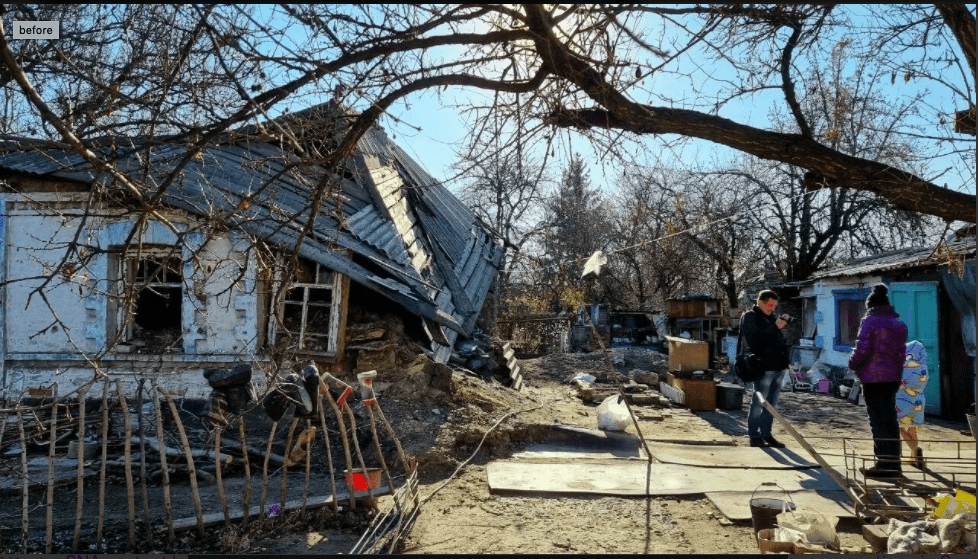
But what even locals sometimes forget: Only a ten-minute drive from the city center is the gray zone between Donbas and Ukraine, where a considerable part of the population experiences the war firsthand daily. Normal, peaceful people live here, families with children who had the misfortune to have Ukrainian forces advance right up to their homes in the course of the war, turning their neighborhood into a combat zone. It is hard to imagine a starker contrast – on one side the boutiques and wholesome buildings of Donetsk’s center, on the other the border residential areas where no house has been left undamaged. Here people live a life of poverty and constant fear.
I decided to take a closer look at these urban areas. Andrei Lisenko has been providing humanitarian aid there every day since the beginning of the war and now regularly takes me with him on his trips. I will never forget what I saw here.
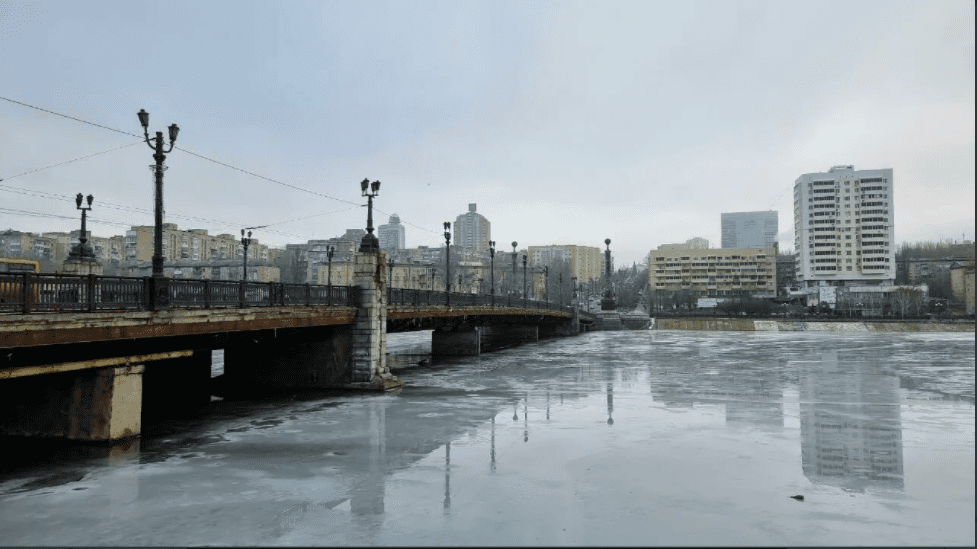
On my first trip to the gray zone, we drove to various south-western districts of Donetsk. To enter the zone, we had to pass through two heavily armed checkpoints, the so-called “block posts,” which were set up on every road leading west (i.e., towards Ukraine). The soldiers did not check us – they recognized Andrei’s car from far away and simply waved us through. After the two checkpoints, a few hundred meters apart, a third barrier followed, but it is entirely closed: the border with Ukraine. Shortly before that, we made a sharp turn and drove through a residential area. Most of the houses were damaged in some way: bullet holes, broken windows, fire damage. Some homes were destroyed, others abandoned.
We visited an elderly deaf gentleman with no legs who was shot by a Ukrainian sniper in his own backyard, a mother with a malnourished six-year-old daughter who had been living in a ruined house with a destroyed roof since 2014, and a family with two daughters who had lived in a shelter for 12 months last year. Andrei distributes food packages, clothing donations, and cash financed from donations. Otherwise, no one helps them; government aid programs do not exist.
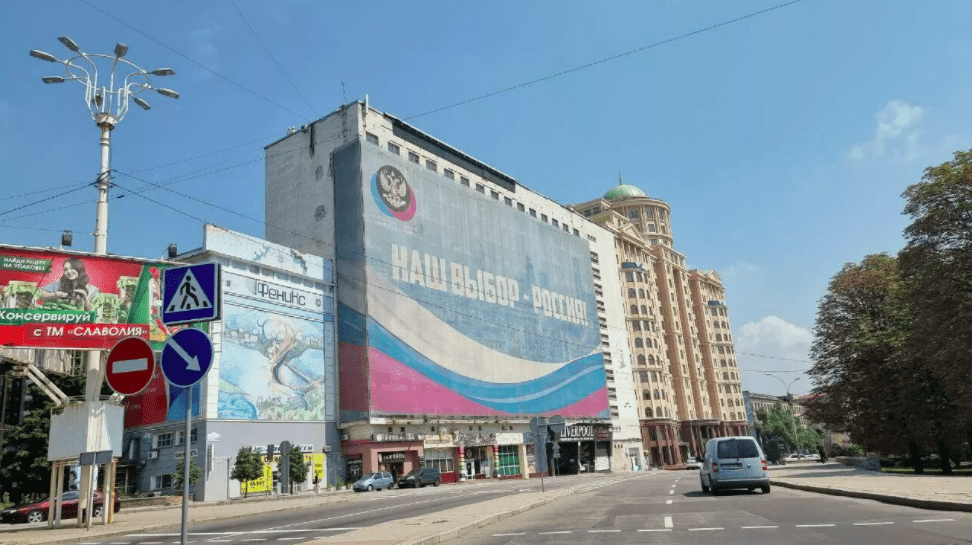
On paper, the Minsk agreement is being observed, but in reality, the conflict continues to smolder and threatens to escalate at any time.
It is impossible to understand what is happening here or grasp why the Ukrainian side has been terrorizing the civilian population for years. I write this deliberately because the Donetsk People’s Militia does not do this. The “evil separatists,” as they are often called in our media, only defend themselves against the daily provocations of the Ukrainian armed forces – I can confirm this after three months of stay, numerous conversations, and my observations. From the Donetsk side, it is incomprehensible how the Ukrainians do not even shy away from shooting at schools. In November 2021, for example, three schools in the Donbas were shelled within ten days.
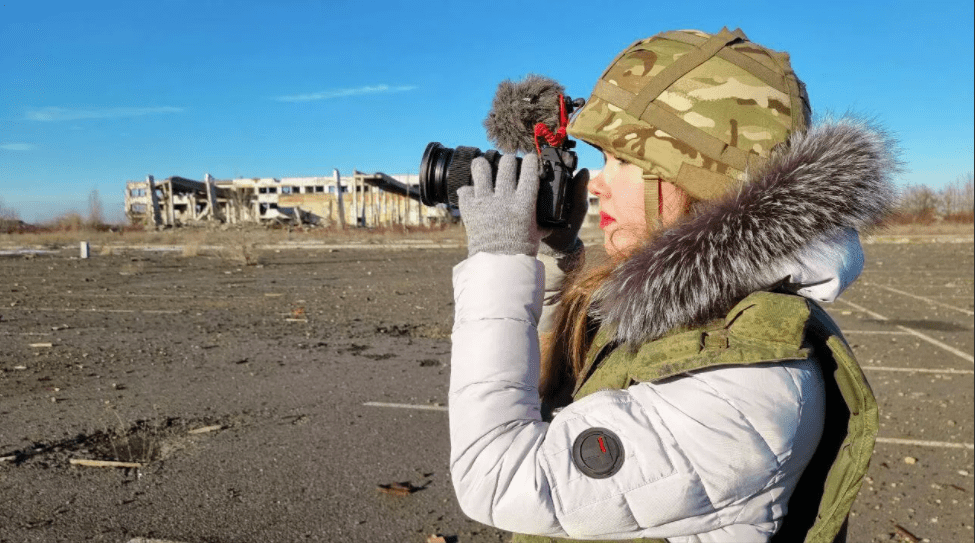
I am shaken to the core by the injustice, misery, and crimes against humanity that are taking place in the middle of Europe. However, this conflict will end – the main thing is that it finally comes to an end.
But will the whole thing be able to find a peaceful end? What if the Ukrainian army, which has moved closer and is armed with Western weapons, dares to provoke?
You can find more on Lipp’s reports on her website, my live ticker on the Donbas conflict including photos and videos from Donetsk on Telegram .
Read more at: RairFoundation.com
Please contact us for more information.

















